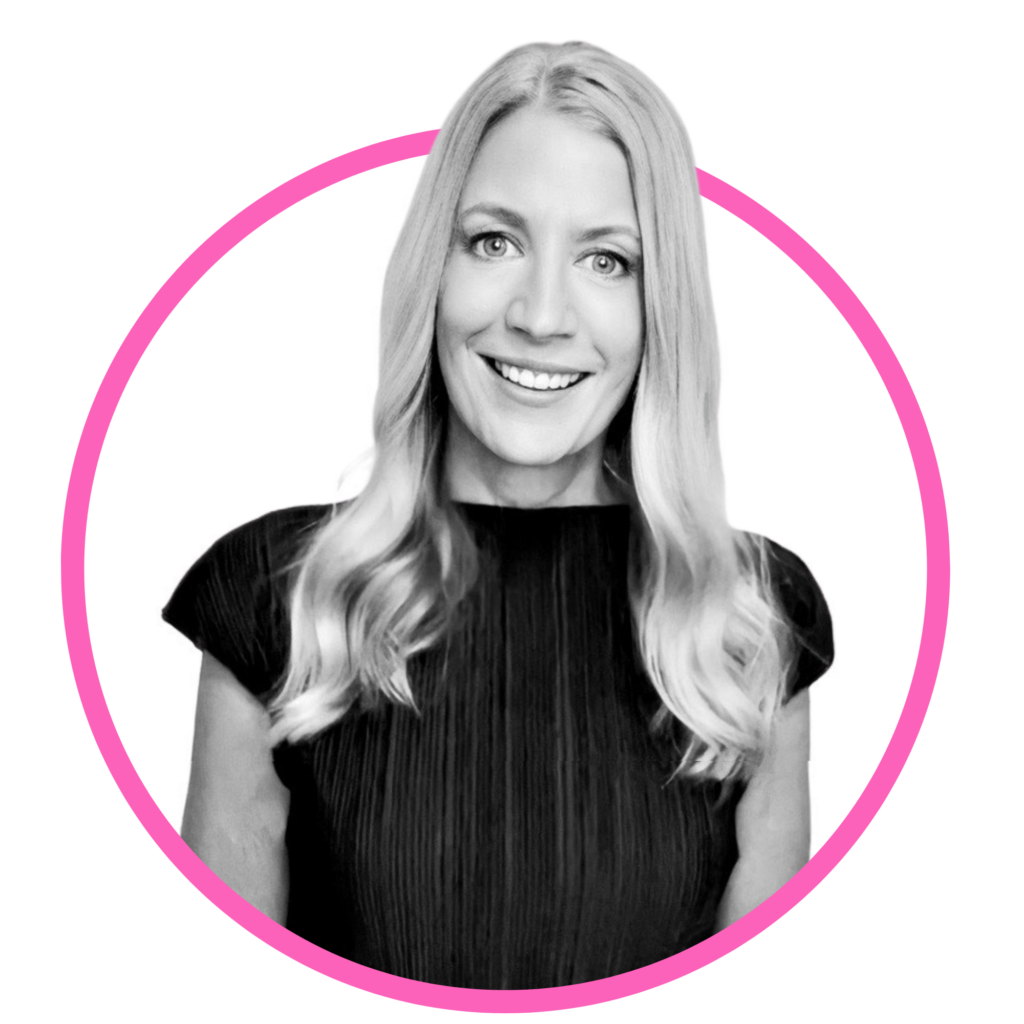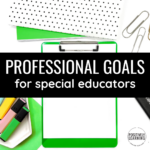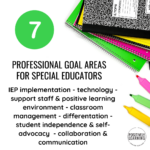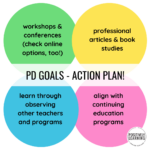
Every year in our school district (public schools), we're required to submit professional annual goals and our plan to achieve them. These professional development goals may be associated with a content area we were looking to improve in and apply to our current school setting or a long term goal aligned with a degree program. While these goals may vary from one educator to another, there are some common teaching career goals that many special educators strive to achieve.
Now that you've selected a goal that supports your educational needs, what action steps will you take to achieve them?
Especially in already-packed school hours?
Here are some options I've used when constructing my own professional goals – feel free to borrow or mix and match any of these ideas!
While there are many goals you could set for your professional development this school year, these seven ideas are a great place to start. And the best part is that they don’t require a lot of time or energy to implement. My biggest piece of advice is to choose a topic you're either already focused on or aligned with your professional interests.
I can't wait to hear which goal you're choosing! Leave a comment below on which goal you’ll be focusing on this school year.

I’m Jennifer and I was a special educator in the elementary school setting over the past decade. I entered the classroom every day dedicated to making learning inclusive AND engaging.







This website uses cookies to ensure you get the best experience on our website. See full disclosure here.
This website uses cookies to ensure you get the best experience on our website.
See full disclosure here.